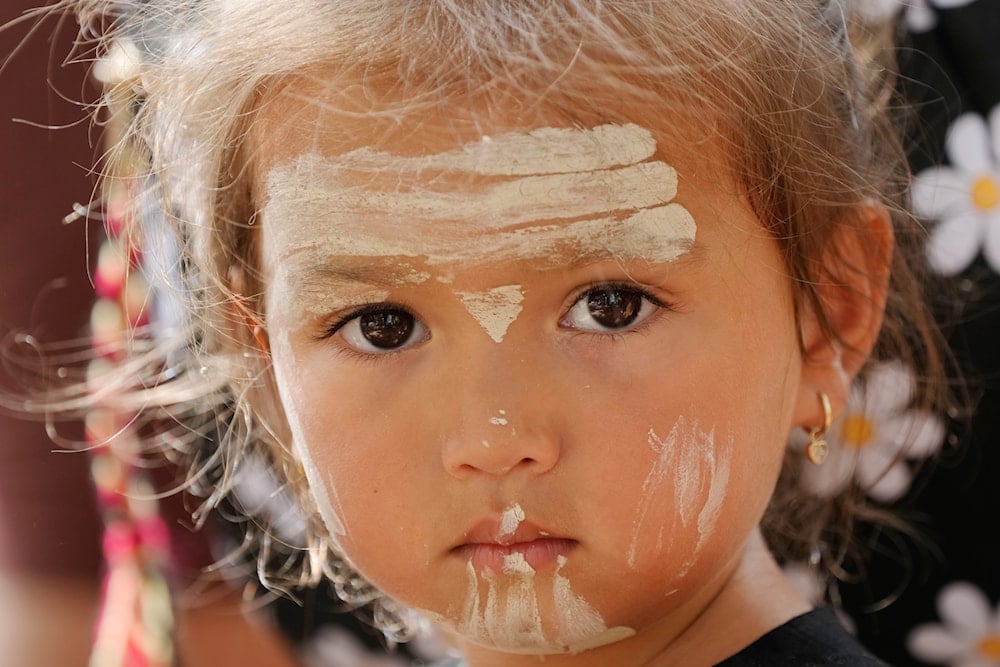Australian PM calls for urgent reforms in indigenous welfare
Despite living in one of the world’s wealthiest nations, Indigenous Australians continue to face significant disadvantages compared to their non-Indigenous counterparts.
-

Elouera Dephoff, 2, has traditional paint adornments on her face while attending an Indigenous Australians protest during Australia Day in Sydney, Friday, Jan. 26, 2024. (AP)
The Australian government has called for urgent action to improve the lives of Indigenous people, following an annual report that underscores their shorter life expectancy, poorer health outcomes, and higher incarceration rates.
Despite living in one of the world’s wealthiest nations, Indigenous Australians—who make up nearly 4% of the country’s 27 million population—continue to face significant disadvantages compared to their non-Indigenous counterparts. Challenges persist across key areas such as education, housing, health, and imprisonment rates.
Presenting the annual Closing the Gap report to parliament, Prime Minister Anthony Albanese acknowledged that while progress had been made in 11 of 19 key targets, only five were on track to be achieved.
Indigenous and non-Indigenous Australians' stories are "intertwined," he said, yet "there are still too many areas in which we are not together."
Why it matters
Government data highlights stark inequalities: Indigenous Australians have a life expectancy about eight years shorter than the rest of the population, incarceration rates over 10 times higher, and a growing number of children living in care.
Albanese pointed to the continued prevalence of rheumatic heart disease, describing it as “a third world disease that has all but faded from living memory in most of our nation but retains its grip on Indigenous Australia.”
While emphasizing that “we are delivering real results,” he acknowledged, “there is so much more that we need to do.” He added that “to close the gap would ultimately erase the gulf that lies between us and our true potential as a nation.”
With a national election due by May 17, Albanese highlighted his government’s recent commitments, including a six-year, AU$843 million (US$530 million) investment to improve essential services in remote Indigenous communities of the Northern Territory. He also pledged to ensure that 30 essential goods in remote stores would not be priced higher than in urban areas.
The prime minister has faced political setbacks on Indigenous issues, notably the October 2023 referendum on constitutional reforms for Indigenous rights, which was soundly rejected by voters despite his appeals.
The big picture
Australia, a British colony for more than a century, witnessed the displacement of entire Indigenous communities and the killing of thousands of them.
Though the country gained de facto independence in 1901, it remains a constitutional monarchy with King Charles as its current head of state.
The debate over becoming a republic resurfaced during King Charles’ visit earlier this year but remains politically stagnant. A recent poll revealed that Australians are evenly divided on the monarchy: a third support its continuation, a third advocate for a republic, and a third are indifferent.
In a 1999 referendum, Australians narrowly rejected the idea of replacing the monarchy, amid disputes over whether a president would be chosen by parliament or the public.
Read next: Indigenous Australian lawmaker censured for heckling King Charles

 3 Min Read
3 Min Read










